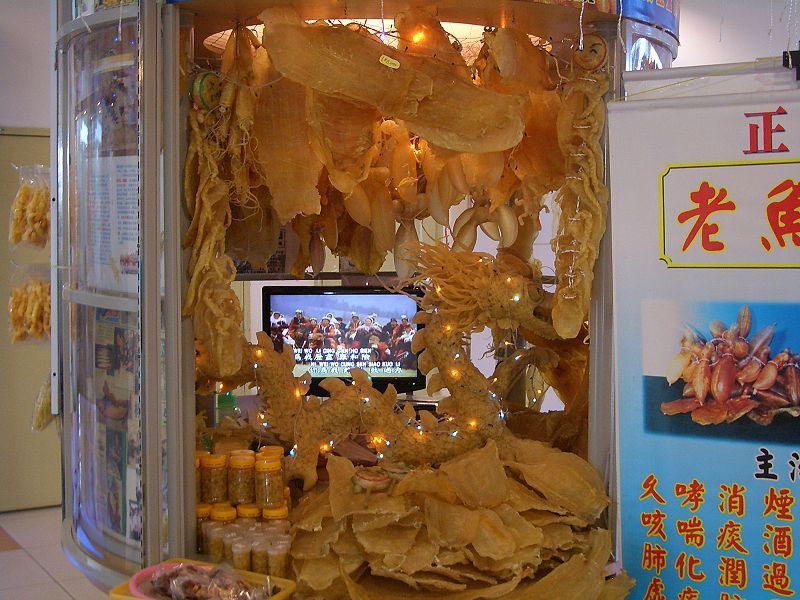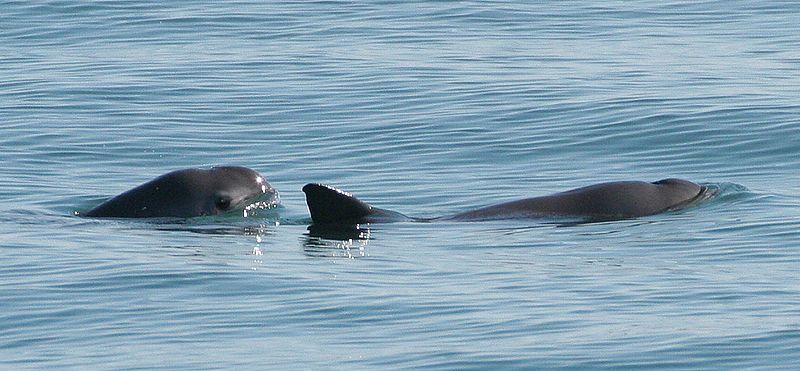Last year the count was 30. When this year’s count came back at 12, optimism for the survival of the vaquita porpoise drained out of researchers’ hearts. Little hope remains for the species whose lives have been snared by illegal gillnet fishing in the Gulf of California.
Spanish for “little cow,” the vaquita were only discovered in the 1950s. Half a century later, they are the most endangered cetacean, on the brink of vanishing forever. The world’s smallest porpoise species, the vaquita average around 5 feet in length and 95 pounds. Tucked between the Baja Peninsula and mainland Mexico, the only habitat for the species is the northern part of the Gulf of California. Though the area has been set aside for protection for the vaquita, their numbers have continued to plummet. The major cause of death is drowning, caused by entanglement in illegal gillnets.
A tragic death for an animal who spends its life in the water, drowning is how most of the vaquita perish. Caught in gillnets meant for fish, the air-breathing marine mammals become ensnared and trapped underwater. Adding insult to injury, the majority of the fishing is for the swim bladder of a fish, erroneously thought to increase fertility. When the carcasses are pulled up in nets, the bodies of the critically endangered animal are just thrown away.
The totoaba is a large fish whose swim bladder catches a high price in China as “maw,” an ingredient added to soup or used as bogus medicine. Though illegal under CITES (Convention on International Trade in Endangered Species), fishermen can get up to $4,000 per pound of swim bladder, enough money to equal half of a year’s worth of legal fishing. One person was found with $3.6 million worth of totoaba swim bladders in his possession. With an illegal trade worth that much money, ending the fishing will be a difficult task. Totoaba themselves are endangered due to this trade.

“Maw,” the swim bladder of the totoaba fish in a Chinese market
“Even if they kill all the vaquitas, we owe it to them to tell their full story, the truth, and we want to take down those responsible[.]”
Andrea Crosta, director of Elephant Action League, an international wildlife trade watchdog group, recently went on a field investigation to find out how many vaquitas remain. In an interview with Mongabay, his comments left little to be optimistic about. With regards to local fishermen he said, “I think they are actually waiting for the vaquita to go extinct so they can fish more and with fewer restrictions.” In a place of poverty, choosing between an endangered animal and putting food on your own table can only result in the latter. The fishermen are as entangled in the illegal trade as the vaquita are in their nets.
Not all have given up the fight for the remaining vaquita. The Mexican government enacted a complete and permanent ban on gillnet fishing in 2017, but the practice has not been curbed. A bold attempt was made in 2017 to capture the remaining vaquita and place them in sea pens until the illegal gillnet fishing could be brought under control. However, it proved too stressful for the animals and caused the death of one breeding-age female.
Operation Milagro IV is a campaign by Sea Shepherd to monitor and protect the porpoises and remove ghost nets, fishing nets abandoned in the water that entangle vaquitas and many other species. WWF is participating in acoustic monitoring, exploring new fishing technologies to replace the gillnets, and working on committees with the Mexican government to come up with solutions. The only question that remains: will it be enough?







